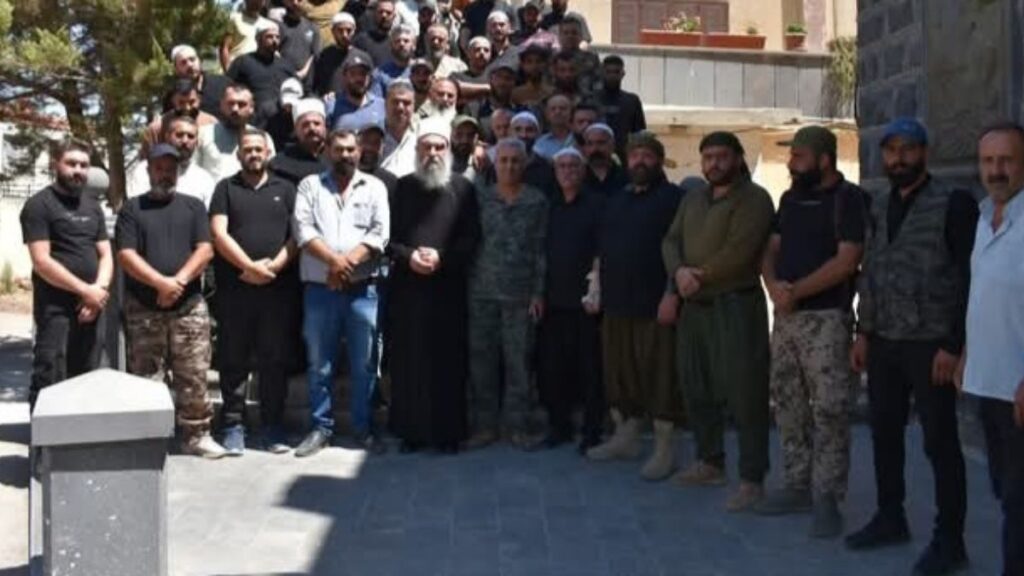In a significant consolidation of power in southern Syria, dozens of local militias in the predominantly Druze province of Suwayda (Swaida) have merged to form a new unified military body, the "National Guard." The announcement, made on August 23, places the new force under the direct leadership of Sheikh Hikmat al-Hijri, the spiritual leader of the Druze community.
The formation, which brings together 30 local factions, was presented as a defensive measure to protect the region and safeguard the Druze community's identity. A statement released by the group affirmed the factions' commitment to Sheikh al-Hijri and their pledge to carry out defensive tasks for the mountainous region, historically known as Jabal al-Druze.
While supporters see the move as a necessary step toward self-governance and security, it has been met with significant controversy due to the controversial pasts of several key member factions.
Critics have pointed to the inclusion of groups like the "Saif al-Haqq Forces" and "al-Fahd Forces." According to Laith al-Balous, a prominent local figure, these groups have been previously implicated in criminal activities including kidnapping, theft, and extortion. He also alleged their prior connections to high-ranking Assad regime security officials and to Raji Falhout, a local commander accused of leading the region's drug trade.
"This is a step lacking reason," al-Balous wrote in a social media post, comparing the new formation to the Iranian "Revolutionary Guard."
The internal politics of the Druze community are also in flux. The influential "Men of Dignity Movement," a powerful local militia, initially declined to join the National Guard. However, they later issued a statement welcoming the unification as a "necessary step" to defend the community against "covetous invaders" and pledged to work toward unity.
The creation of the National Guard comes on the heels of a volatile summer. In July, bloody clashes erupted between local Druze factions and neighboring Bedouin tribes, which led to an intervention by the Syrian army. The situation escalated when Israeli airstrikes targeted Syrian army positions in the south, forcing a government withdrawal to the administrative borders of the province.
Following the army's withdrawal, a US-brokered ceasefire was implemented between Damascus and Tel Aviv. However, the conflict left the main road between Suwayda and Damascus cut off, plunging the province into a severe humanitarian crisis with shortages of food and medicine. The preceding turmoil had seen unprecedented anti-government demonstrations in Suwayda, with some protesters demanding complete independence and even calling for protection from Israel against Damascus.
The formation of the National Guard solidifies a new reality on the ground, formalizing the military autonomy of Suwayda's Druze community in a fractured and volatile southern Syria. However, with internal divisions over the legitimacy of its component factions and a deepening isolation from the capital, the new force faces a challenging path ahead.
Photo: Enab Baladi
